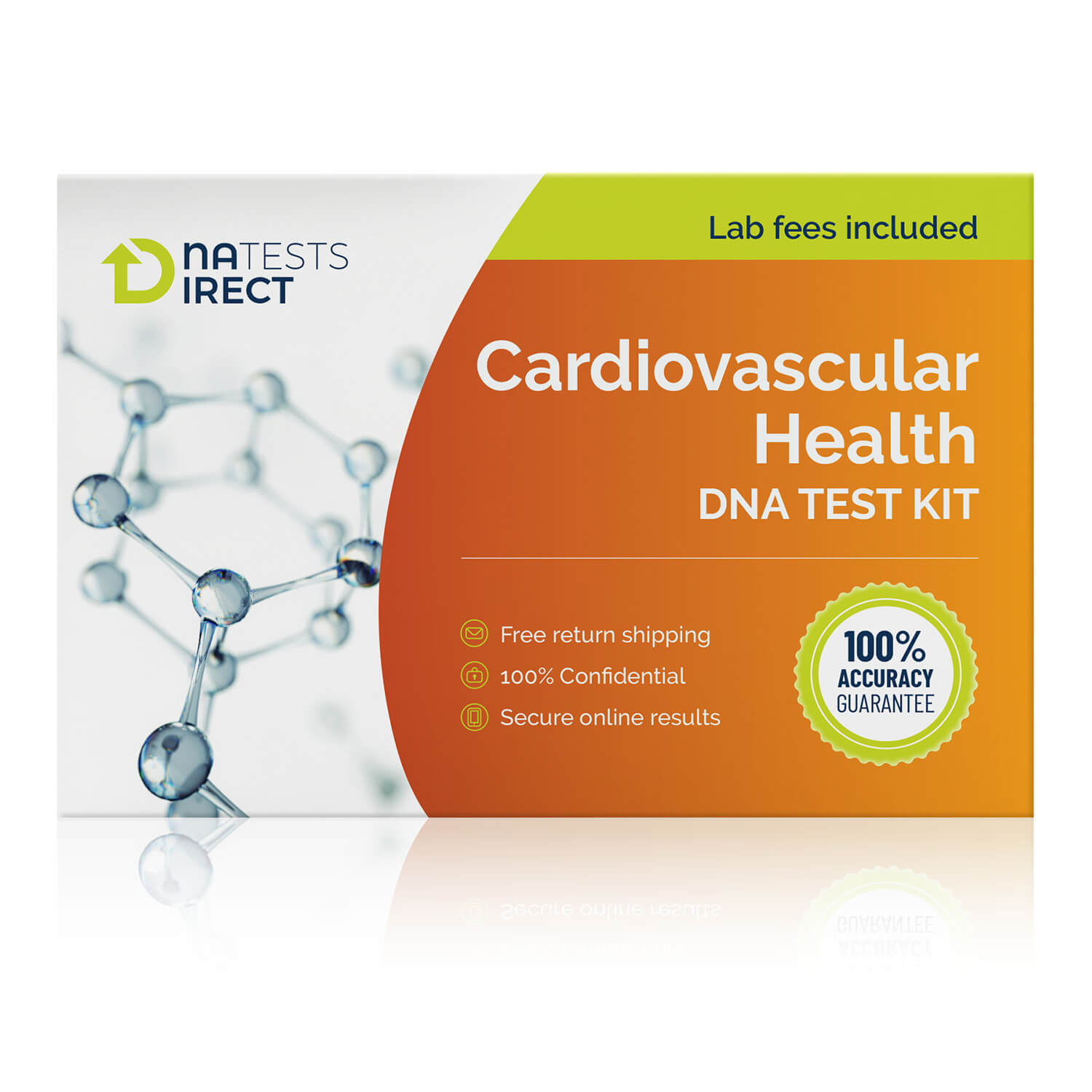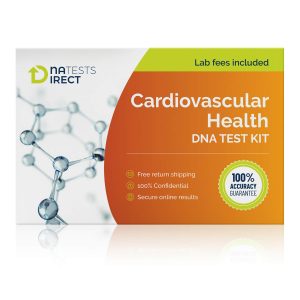 DNA Heart Health Test
DNA Heart Health TestDNA Heart Health Test
$349
Your Heart Health, Your DNA
Our at-home DNA Heart Health Test offers you a comprehensive look into your genetic predispositions related to heart health. By analyzing specific genetic variants, this test provides insights into your risk for heart disease, cholesterol levels, and triglyceride levels, allowing you to make informed decisions about your health.
- Online Results: Receive confidential results through a secure online portal, ensuring your privacy and peace of mind at every step.
- Painless Sampling: Collect your DNA samples with easy-to-use mouth swabs – no blood or needles required.
How It Works

Order
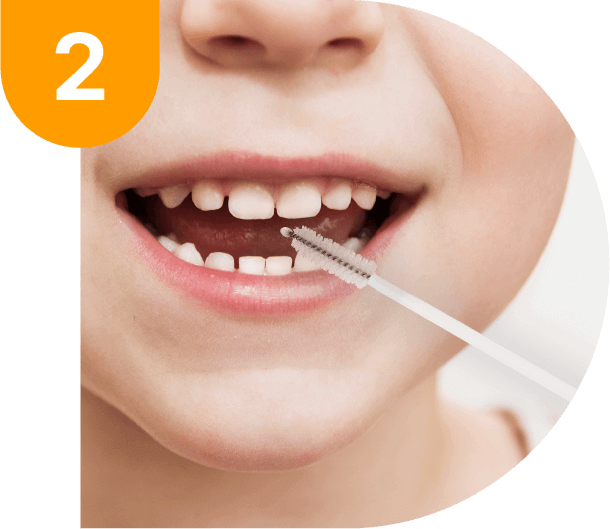
Send
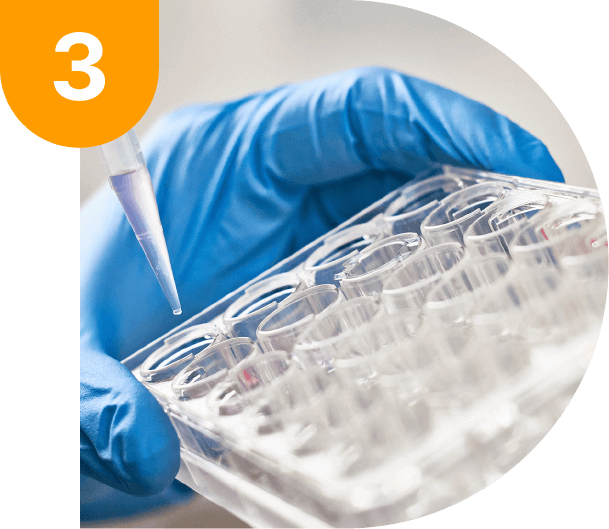
Receive your results

Results
About Cardiovascular Disease (CVD)
Cardiovascular disease (CVD) is a broad term for a range of conditions affecting the heart and blood vessels, including coronary artery disease, heart attacks, strokes, and heart failure. It’s a leading cause of death worldwide, with its prevalence rising due to unhealthy lifestyles, aging populations, and increased rates of obesity and diabetes.
The Role of Lipids
A key contributor to CVD is dyslipidemia, characterized by abnormal levels of lipids (fats) like cholesterol and triglycerides. These lipids play a critical role in atherosclerosis, a buildup of plaque in the arteries.
- Cholesterol: This waxy substance is essential for hormone production and cell membrane maintenance. However, high levels of low-density lipoprotein (LDL) cholesterol, or “bad” cholesterol, can contribute to plaque buildup, raising the risk of heart disease and stroke. Conversely, high-density lipoprotein (HDL) cholesterol, or “good” cholesterol, removes excess cholesterol from arteries, reducing CVD risk.
- Triglycerides: These lipids come from food or are produced by the body. High triglyceride levels can also lead to atherosclerosis and increase heart disease risk.
Lipid metabolism and cholesterol regulation involve complex pathways influenced by genetic and environmental factors. Genetic variations can disrupt these processes, causing imbalances in cholesterol and triglyceride levels. For instance, variations in the LDLR gene, responsible for LDL receptor production, can hinder the body’s ability to remove LDL cholesterol, potentially raising levels and CVD risk. Variations in APOA5, LIPC, and CETP can affect HDL cholesterol and triglyceride levels.
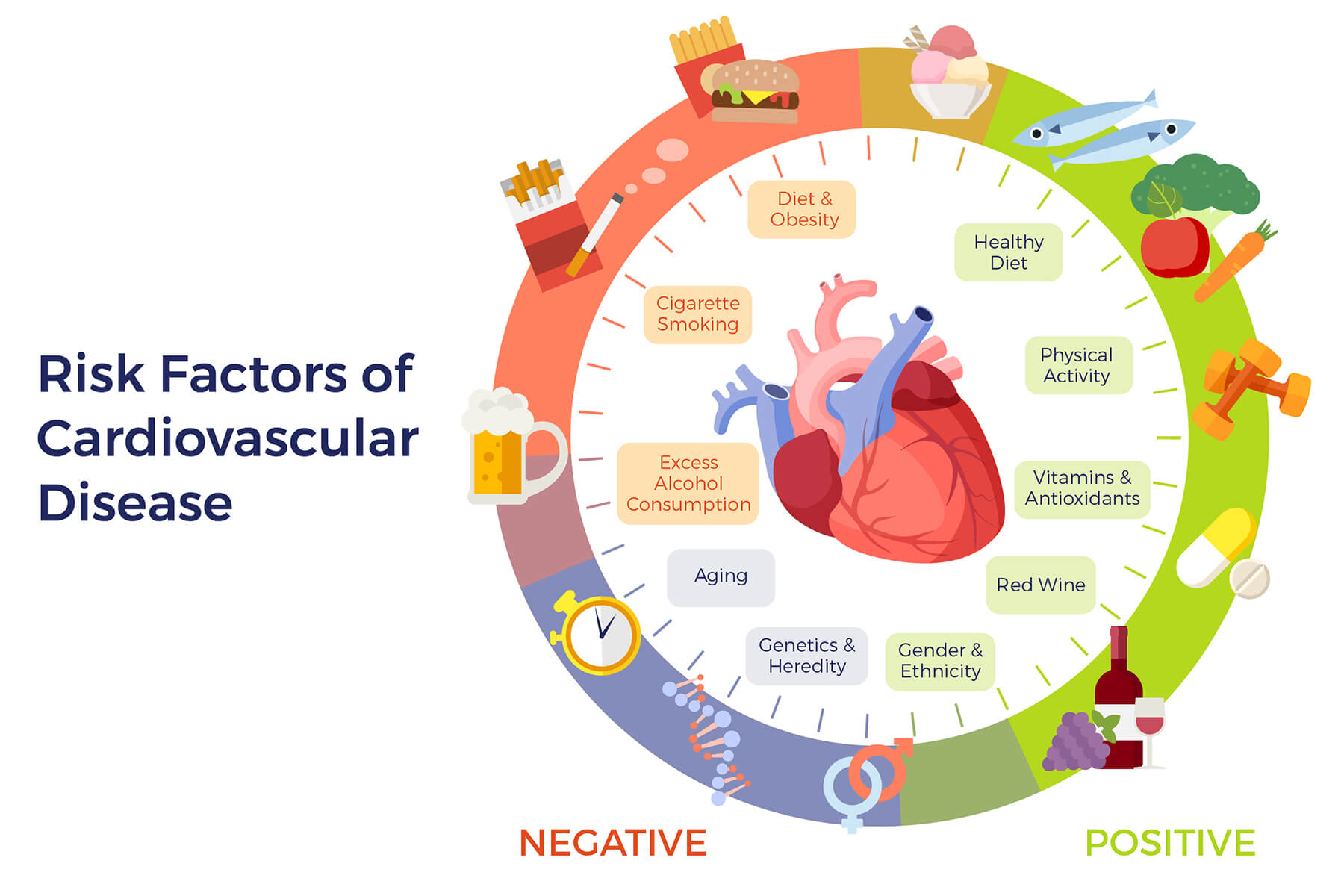
The Genetics of Heart Health
Your genes significantly influence your risk of developing cardiovascular disease (CVD). While lifestyle choices like diet, exercise, and smoking contribute, genetic variations can also impact lipid metabolism, cholesterol regulation, and other factors crucial for heart health.
Numerous genes contribute to CVD and dyslipidemia. These genes regulate cholesterol levels, triglyceride levels, and other factors related to cardiovascular health through various pathways.
- LDLR Gene: Variations in this gene, which codes for the LDL receptor, can affect the body’s ability to remove LDL (“bad”) cholesterol. Certain variants may lead to higher LDL levels and increased CVD risk.
- APOA5 Gene: This gene is crucial for triglyceride regulation. Variations can lead to imbalanced triglyceride levels, impacting cardiovascular risk.
- LIPC and CETP Genes: These genes influence HDL cholesterol metabolism. Variations can affect HDL levels and subsequently CVD risk.
Genetic variations can also impact other pathways, including inflammation, blood clotting, and endothelial function (the health of blood vessel linings). For example, variations in the NOS3 gene, involved in nitric oxide production for blood vessel regulation, are linked to increased CVD risk.
Note that the impact of genetic variations on CVD risk is often complex, influenced by interactions with other genetic, environmental, and lifestyle factors. Having a specific variant doesn’t guarantee CVD development but indicates an altered risk.
Understanding Your Results
The at-home DNA Heart Health Test analyzes over 30 genetic variants associated with various aspects of heart health, including cholesterol levels, triglyceride levels, and lipid metabolism.
| Genes | Variants | Description |
|---|---|---|
| LPA | rs3798220, rs10455872 | Linked to increased levels of lipoprotein(a), a risk factor for cardiovascular disease. |
| GCKR | rs1260326 | Associated with impaired glucose metabolism and increased risk of type 2 diabetes, which can contribute to cardiovascular disease. |
| LIPC | rs1800588, rs10468017, rs2070895 | Involved in the metabolism of HDL cholesterol and triglycerides. Variations can affect HDL and triglyceride levels. |
| ANGPTL4 | rs2967605 | Linked to decreased levels of HDL cholesterol, which is a protective factor against cardiovascular disease. |
| APOA5/A4/C3/A1 | rs964184 | Associated with increased triglyceride levels and decreased HDL cholesterol levels, both of which are risk factors for cardiovascular disease. |
| GALNT2 | rs4846914 | Linked to increased triglyceride levels and decreased HDL cholesterol levels. |
| TRIB1 | rs2954029 | Associated with decreased triglyceride and LDL cholesterol levels, which can be protective against cardiovascular disease. |
| NOS3 | rs1799983 | Involved in the production of nitric oxide, which regulates blood vessel function. Variations can increase the risk of cardiovascular disease. |
| LPL | rs12678919, rs328 | Linked to decreased triglyceride levels and increased HDL cholesterol levels, which can be protective against cardiovascular disease. |
| NCAN | rs16996148 | Associated with decreased LDL cholesterol levels, which can reduce the risk of cardiovascular disease. |
| ANGPTL3 | rs10889353 | Linked to decreased triglyceride levels, which can be protective against cardiovascular disease. |
| MLXIPL | rs714052 | Associated with decreased triglyceride levels, which can reduce the risk of cardiovascular disease. |
| HNF1A | rs2650000 | Linked to increased LDL cholesterol levels, which is a risk factor for cardiovascular disease. |
| HMGCR | rs3846663 | Involved in cholesterol synthesis. Variations can affect LDL cholesterol levels and cardiovascular disease risk. |
| SUGP1 | rs10401969 | Associated with decreased LDL cholesterol levels, which can reduce the risk of cardiovascular disease. |
| PCSK9 | rs11206510 | Linked to decreased LDL cholesterol levels, which can be protective against cardiovascular disease. |
| LDLR | rs6511720 | Variations in this gene can affect the body’s ability to remove LDL cholesterol from the bloodstream, impacting cardiovascular disease risk. |
| SORT1 | rs12740374 | Associated with decreased LDL cholesterol levels, which can reduce the risk of cardiovascular disease. |
| APOB | rs515135 | Linked to decreased LDL cholesterol levels, which can be protective against cardiovascular disease. |
| LCAT | rs2271293 | Involved in HDL cholesterol metabolism. Variations can affect HDL levels and cardiovascular disease risk. |
| CETP | rs247616, rs1800775, rs708272 | Linked to increased HDL cholesterol levels, which can be protective against cardiovascular disease. |
| HNF4A | rs1800961 | Associated with decreased HDL cholesterol levels, which is a risk factor for cardiovascular disease. |
| MMAB | rs2338104 | Linked to decreased HDL cholesterol levels, which can increase the risk of cardiovascular disease. |
| LIPG | rs4939883 | Involved in HDL cholesterol metabolism. Variations can affect HDL levels and cardiovascular disease risk. |
| 9p21 | rs1333049 | Associated with cell proliferation and inflammation, which can contribute to the development of atherosclerosis and cardiovascular disease. |
| FADS1 | rs174547 | Linked to increased triglyceride levels, which is a risk factor for cardiovascular disease. |
| FADS1 | rs174547, rs174537 | Associated with altered levels of LDL cholesterol, HDL cholesterol, and triglycerides, which can impact cardiovascular disease risk. |
| FADS1 | rs174537 | Linked to decreased LDL cholesterol levels, which can be protective against cardiovascular disease. |
Understanding the science behind these variants can provide valuable insights into an individual’s predispositions related to various aspects of cardiovascular health, including cholesterol levels, triglyceride levels, and overall risk of developing cardiovascular disease.
Remember, this test is not intended to diagnose or predict heart disease. It’s a tool to empower you with knowledge and help you make informed decisions about your heart health in consultation with your healthcare provider.
Frequently Asked Questions
Once your sample is received by our laboratory, processing usually takes 6-8 weeks. You will receive an email notification when your results are ready, and you can access your detailed report through a secure online portal.
We take data privacy seriously. Your results are confidential and only shared with you. We do not share your results with insurance companies, employers, or any other third parties.
Why DNA Tests Direct?
Accredited Excellence
Your Privacy, Protected
Expert Support
Related Test Kits
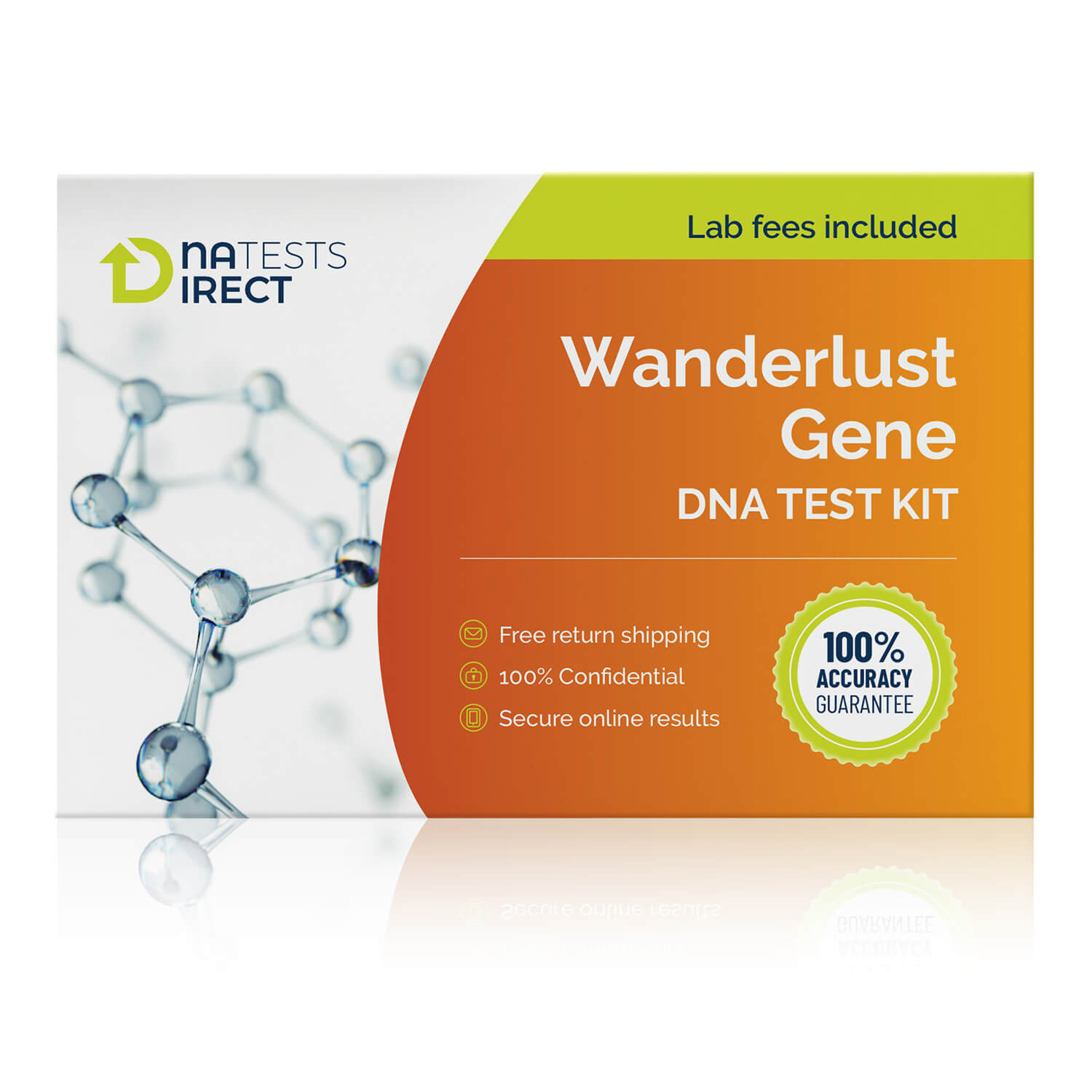
$149
Discover if you have the “wanderlust gene” with our at-home DNA test, which examines the DRD4 gene to determine if you have a variant associated with a love of travel and adventure.

$149
Are you prone to being promiscuous? It could be because of your genes. Find out if you have the “promiscuity” gene with this test.
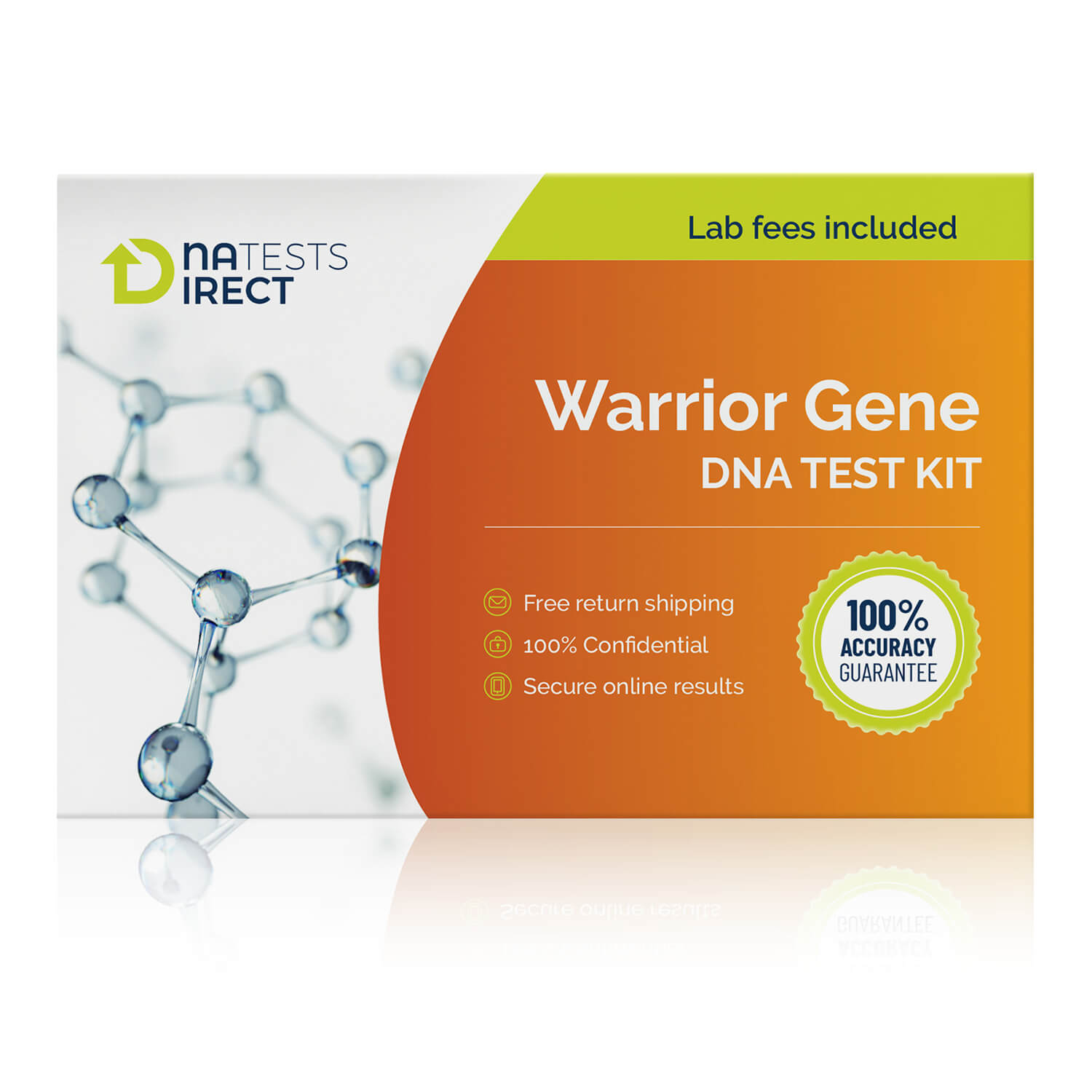
$149
Are you a risk-taker? Do you thrive under pressure? Discover your genetic predisposition for aggression, risk-taking, and other key traits with our easy-to-use, at-home Warrior Gene DNA Test.
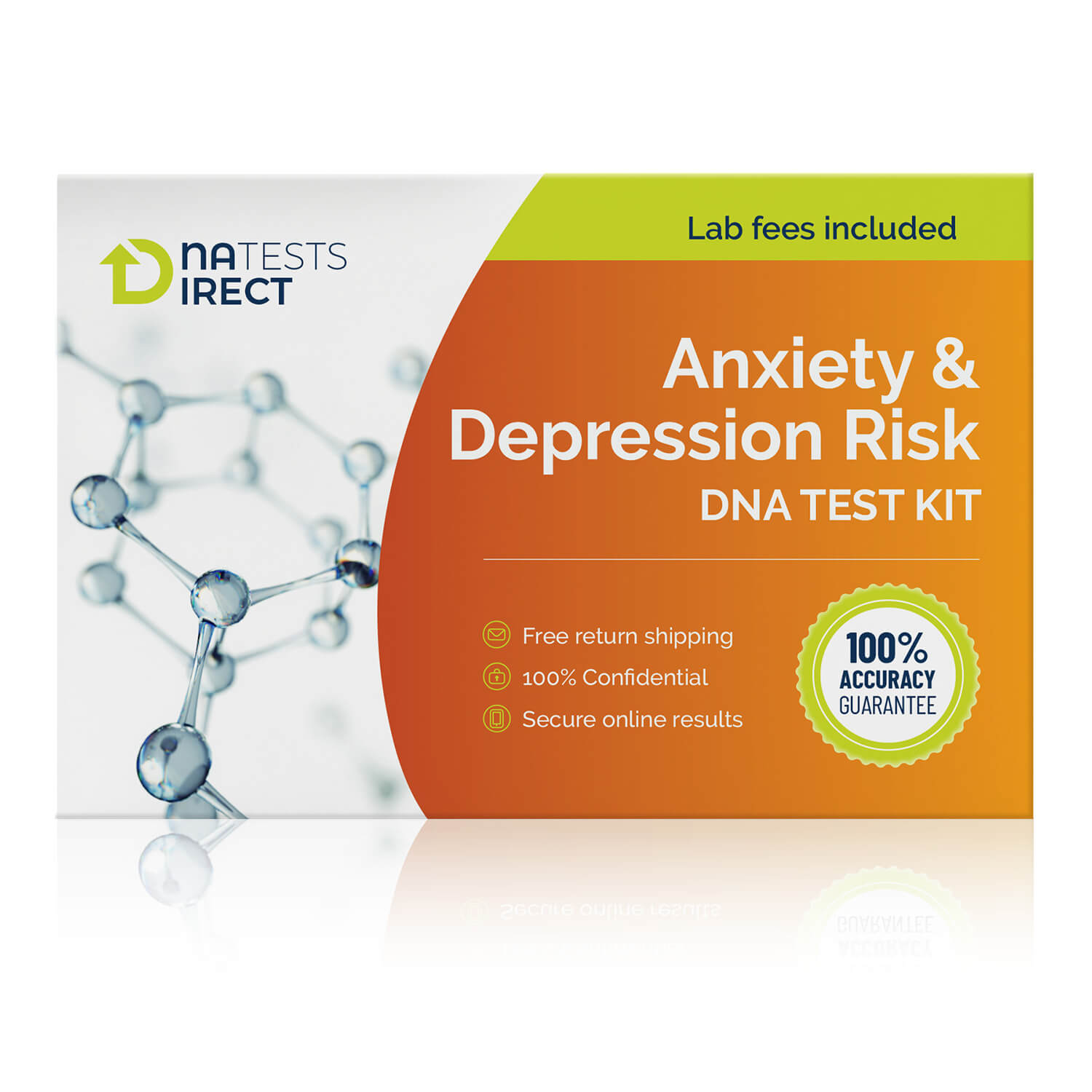
$149
Do your genes play a role in how you feel? This test reveals how your DNA might affect your mood, stress levels, and risk for anxiety and depression.
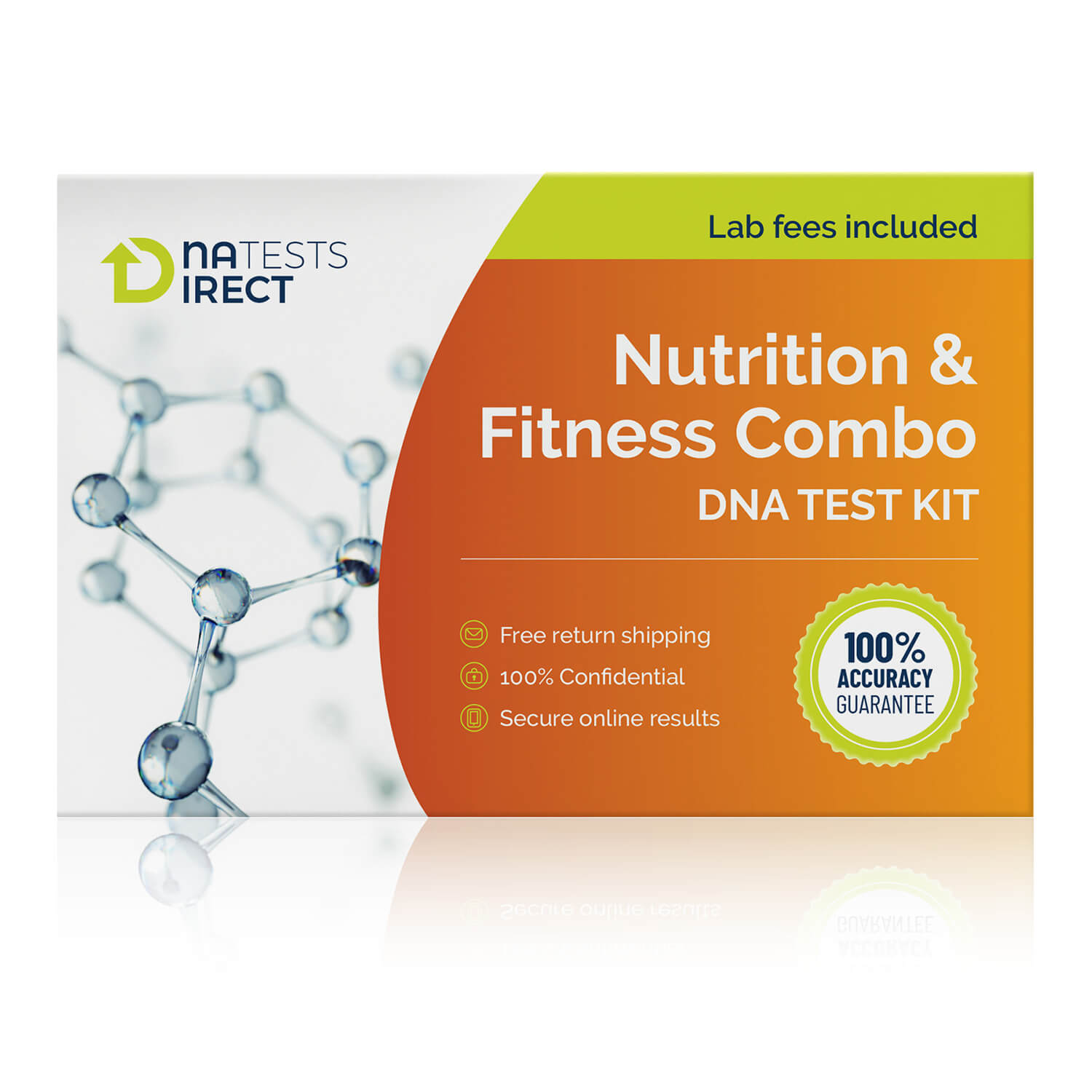
$498
Unlock your genetic potential for a healthier lifestyle with our comprehensive DNA Diet & Fitness 3 Test Combo. This bundle combines three powerful tests – Nutrition, Fitness, and Weight Loss – to provide a complete picture of how your unique DNA influences your overall health and wellness.
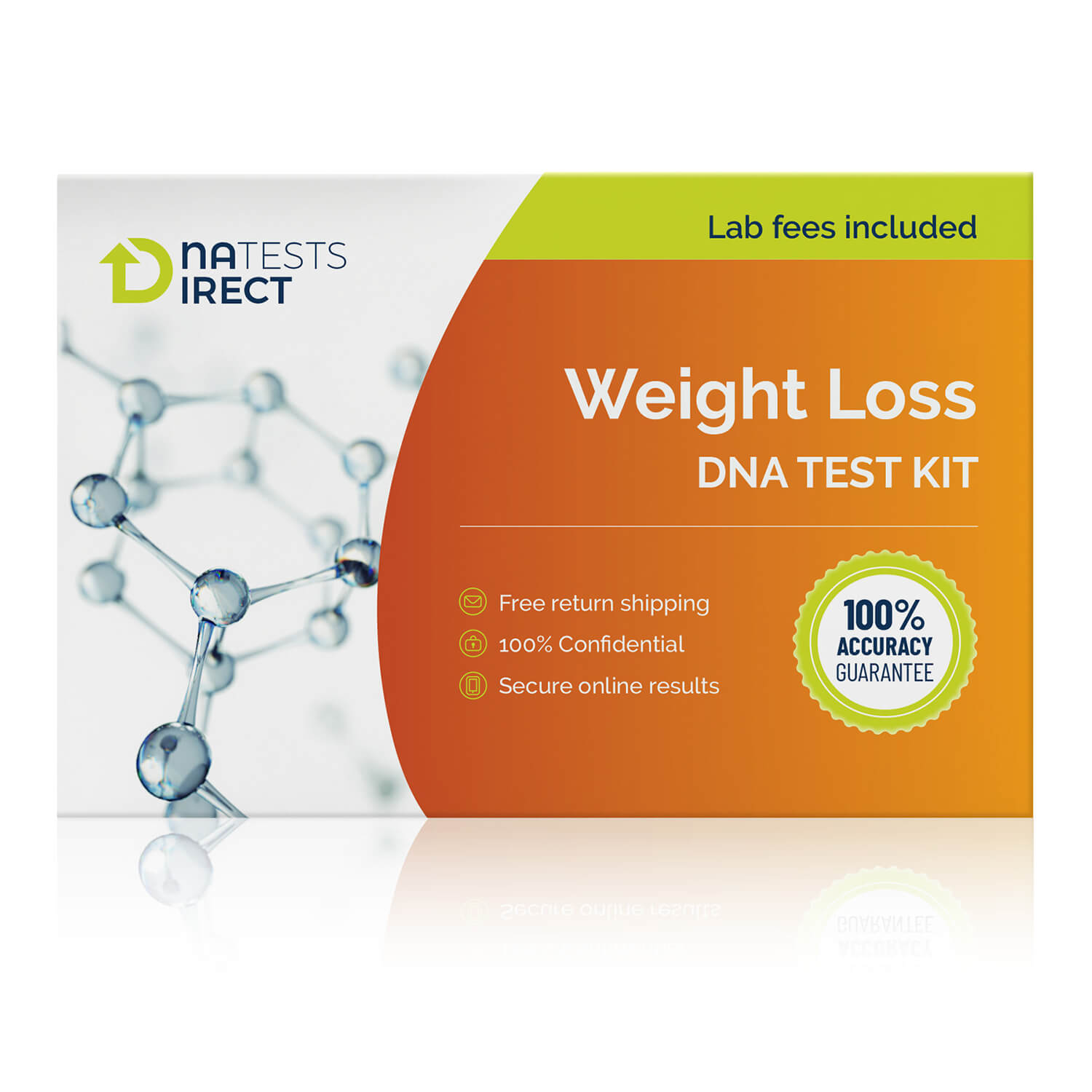
$249
Are you struggling to lose weight? Genes affect your ability to lose weight and maintaining it. Genetic changes can influence hormone levels, metabolism, our desire to overeat and motivation to exercise. Discover more about your genes and work with your DNA to fit into those designer jeans!

$149 $271
Find out the likelihood of a true biological relationship between a potential grandparent and grandchild.
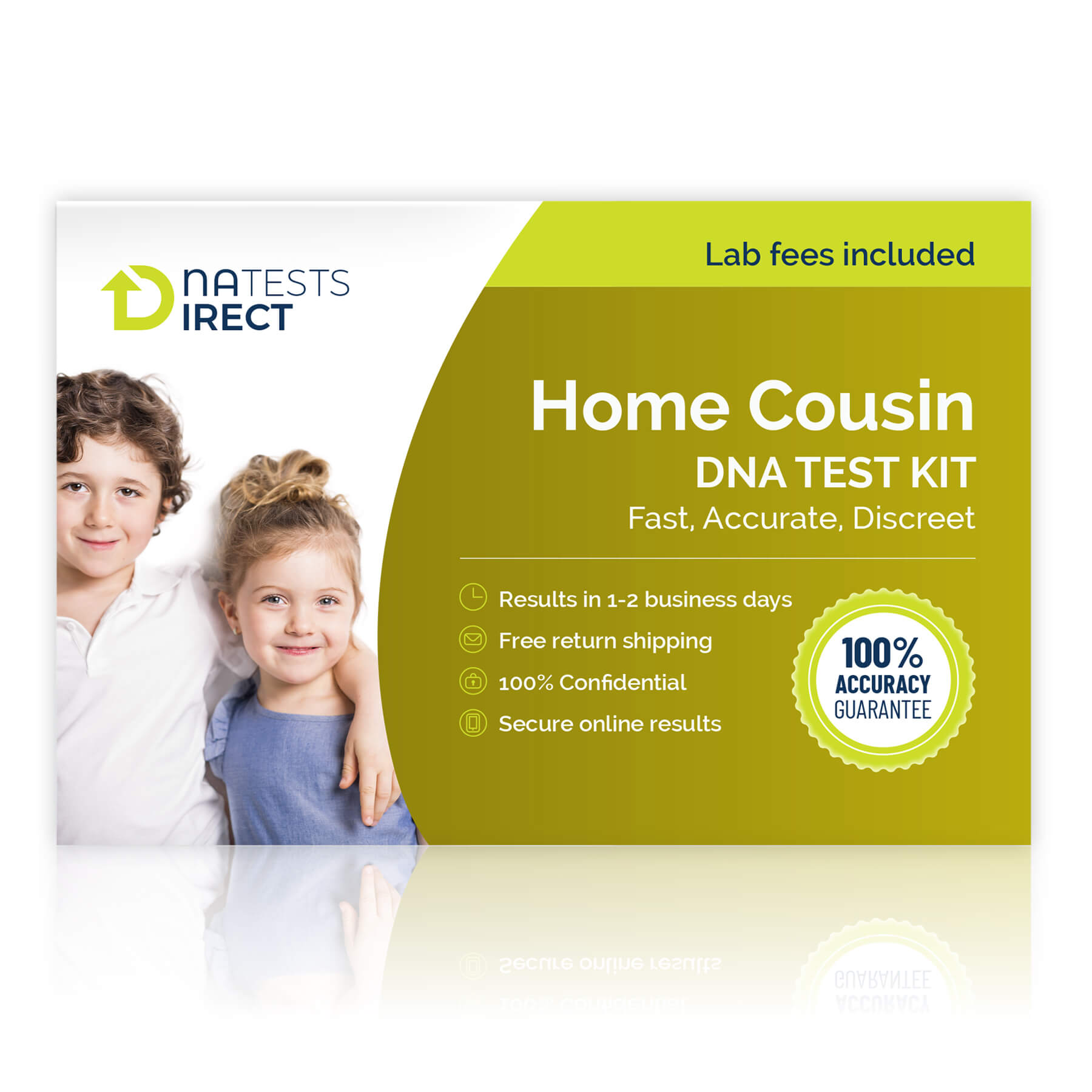
$149 $271
Find out the likelihood that two people are biologically related as first cousins.

